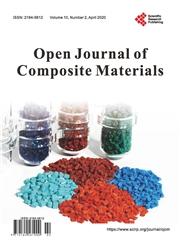Experimental Investigation of the Impact of Compression on the Petro-Physical and Micromechanical Properties of Wellbore Cement Containing Salt
引用次数: 1
Abstract
In this study, we investigated the effect of compression on the micromechanical and the petro- physical properties of salted wellbore cement systems. The experiments were conducted using a customized bench scale model, which utilized an expandable tubulars simulating the compression of a previously cemented casing under field-like conditions. The “mini-wellbore model” sample consisted of a pipe inside pipe assembly with a cemented annulus. The cement samples were cured in a water bath for 28 days prior to the compression experiments to allow adequate hydration. The impact of compression on the cement’s petro-physical and mechanical properties was quantified by measuring the porosity, permeability and hardness of salt cement cores drilled parallel to the orientation of the pipe from the compacted cement sheath. Permeability (Core-flood) experiments were conducted at 21℃, 10,342 kPa confining pressure for a period of 120 minutes. During the core-flood experiments, conducted using Pulse-decay method, deionized water was flowed through cement cores to determine the permeability of the cores. The results obtained from these experiments confirmed that the compression of the cement positively impacted the cements ability to provide long term zonal isolation, shown by the effective reduction in porosity and permeability. Furthermore, the results confirm reduction in the detrimental effect of salt on the strength and stiffness in post-compression cement.压缩对含盐井眼水泥岩石物理和微观力学性能影响的实验研究
在本研究中,我们研究了压缩对盐井筒水泥体系微观力学和石油物理性质的影响。实验采用定制的台式模型进行,该模型利用可膨胀管模拟在类似现场条件下之前固井套管的压缩。“迷你井眼模型”样品由一根管内管组合组成,环空为胶结环空。在压缩实验之前,将水泥样品在水浴中固化28天,以使其充分水化。压缩对水泥的岩石物理和力学性能的影响是通过测量从压实水泥环平行于管柱方向钻取的盐水泥岩心的孔隙度、渗透率和硬度来量化的。渗透率(岩心-注水)实验在21℃、10342 kPa围压条件下进行,持续120分钟。在岩心驱替实验中,采用脉冲衰减法,将去离子水流过水泥岩心,以确定岩心的渗透率。这些实验的结果证实,水泥的压缩对水泥提供长期层间隔离的能力有积极的影响,这可以通过有效降低孔隙度和渗透率来证明。此外,研究结果证实了盐对后压缩水泥强度和刚度的不利影响。
本文章由计算机程序翻译,如有差异,请以英文原文为准。
求助全文
约1分钟内获得全文
求助全文

 求助内容:
求助内容: 应助结果提醒方式:
应助结果提醒方式:


